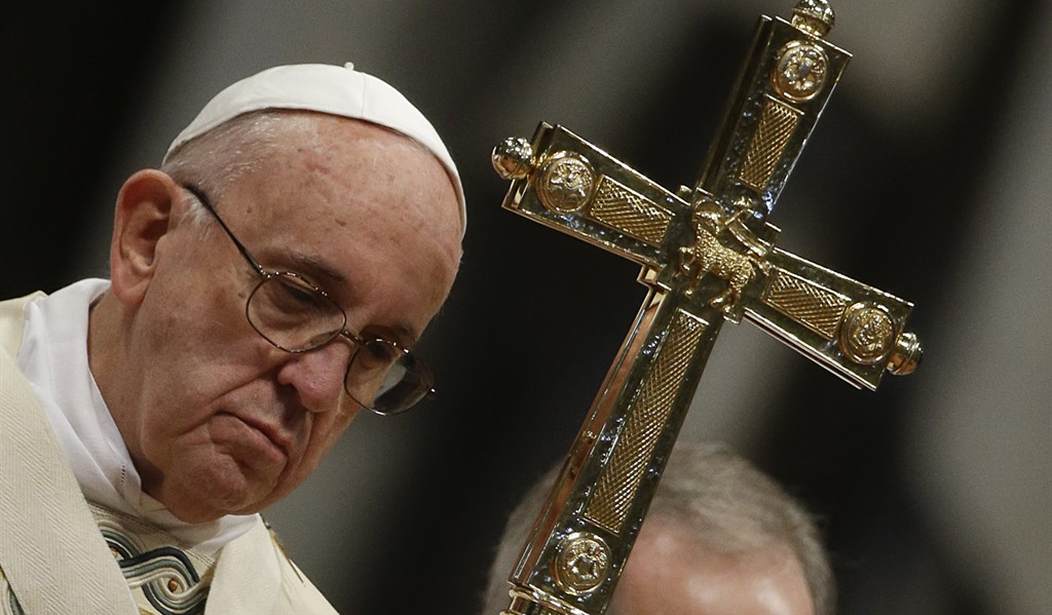If Jesus Christ walked out of His tomb after His death, then certainly everything He said about Himself---that He is the Lord, the way, the truth, and the life---would all receive a stamp of approval.
Why should we listen to Jesus? Because He was dead, and then He was alive. He showed Himself to be alive by “many infallible proofs” according to Luke the physician, in part two of his New Testament writings---what we call the Acts of the Apostles.
A few weeks ago I got to see the movie, “God’s Not Dead 2,” which I enjoyed very much. Even a loved one with a skeptical bent enjoyed the movie. It comes out April 1. I recommend it highly.
In the movie there are some cameos from leading Christian apologists, such as Lee Strobel, a former atheist and Chicago Tribune investigative writer, and Dr. Gary Habermas.
Habermas is a leading scholar on the resurrection of Jesus Christ. At Liberty Baptist Theological Seminary, he is a Distinguished Research Professor and the Chair of the Department of Philosophy. He has studied the resurrection for decades now and has written or co-written 21 books specifically on the topic.
In fact, Habermas had a period of doubt for about ten years. But the more he studied the historical resurrection of Jesus, the more convinced he became that Jesus indeed rose from the dead.
One thing is for sure, the Apostle Paul, who staked his life on the resurrection of Jesus, argued that if Christ did not rise from the dead, our faith is in vain and we are to be pitied more than all men. But Christ did rise from the dead, and therefore everything else falls into place.
Recommended
Habermas takes an approach to the resurrection called the “minimal facts.” He wants to see where scholars---even liberal ones---agree on certain basic facts that apply to this issue. It’s like Sergeant Friday from Dragnet, “Just the facts, Ma’am. Just the facts.”
But what about skeptical scholars? Habermas has two rules for assigning something as a “minimal fact.”
In a recent radio interview, he told me: “The two rules for minimal facts are 1) I will use not one bit of data which is not attested from several sources. I have several strong reasons to accept these as facts. 2) Because that evidence is so good, that’s why the vast majority of critical scholars get on board with these minimal facts and allow them.”
He estimates that the following facts about the resurrection of Jesus would be verified by 90% of the skeptical Jesus scholars. I would add that they would be accepted by virtually 100% of the conservative ones.
Here are the following minimal facts that the majority of scholars, including skeptics, agree to:
- 1) Jesus was crucified by the Romans. Habermas said that this is “not an evidence for the resurrection, but it’s a pre-requisite.”
- 2) The disciples had experiences that believed were appearances of the risen Christ.
- 3) Because of their insistence that they saw Him risen from the dead, they totally changed in disposition from being afraid to being bold and unstoppable. They proclaimed, not just any message, they proclaimed the resurrection message and were persecuted for their proclamation. Habermas notes, “A number of them died for their faith. They were totally transformed and willing to die for their faith.”
- 4) This proclamation of the resurrection was there at the very beginning of the Christian movement---it was not some later add-on.
- 5) One of the earliest to believe in the risen Jesus was the formerly skeptical James, the brother of Jesus.
- 6) Another skeptic changed by claiming he saw the risen Christ was the Apostle Paul, formerly Saul of Tarsus, the anti-Christian persecutor.
Again, these six facts are generally agreed upon by scholars of early Christianity, both friendly and hostile scholars to the faith.
From these, we see a clear pattern. Jesus died on the cross. Then His disciples, who were scared for their lives, suddenly changed into bold witnesses for the risen Christ. Nobody dies for something they know is a lie.
Habermas adds there are other widely accepted facts accepted by many scholars as well, such as:
*The tomb was empty beginning Sunday morning.
*The proclamation of the resurrection began in Jerusalem, which the disciples would not have dared to pursue if it could easily be disproven by procuring His body from the tomb. (This provides much of the tension in another movie I recommend, Risen).
*These strict observers of the Sabbath began to worship Jesus on Sunday, since He arose on Sunday.
What is the best explanation for all these facts? He is risen. He is risen indeed. No wonder the world was changed by the events that began on the first Easter morning.

























Join the conversation as a VIP Member